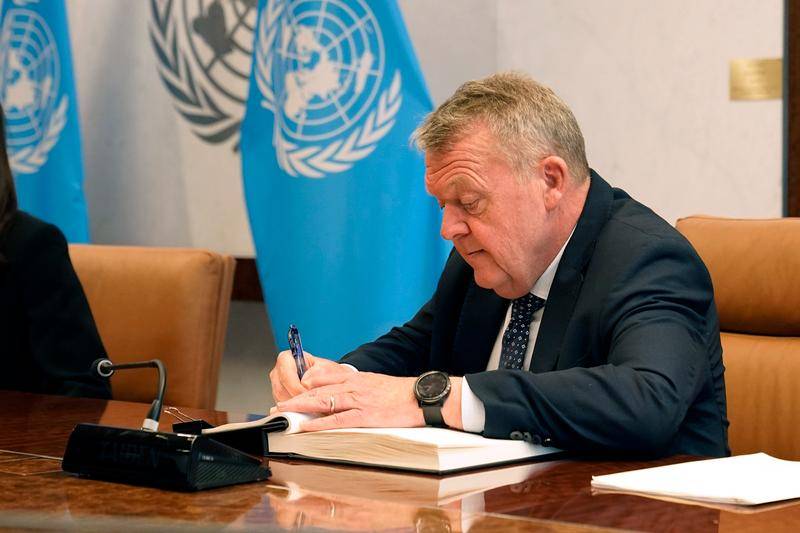Denmark Criticizes U.S. Vice President Vance Over Remarks on Greenland
Copenhagen, Denmark – Tensions between Denmark and the United States have surfaced following comments made by U.S. Vice President JD Vance regarding Denmark’s role in Greenland’s security and governance. Danish officials have pushed back against what they describe as an inappropriate "tone" in Vance’s remarks, signaling rare friction between the two allies.
During a visit to the Pituffik Space Base in Greenland, Vice President Vance criticized Denmark, accusing it of neglecting Greenland’s security needs and underfunding its development. Speaking to military personnel and journalists, Vance stated, “Greenland plays a critical role in Arctic security, but Denmark has not done enough to invest in its defense and well-being.†He also hinted at increased U.S. involvement in the region, suggesting that Greenland would benefit from a stronger partnership with Washington.
His comments quickly drew backlash from Danish officials, who described the remarks as unwarranted and inappropriate. Denmark’s Foreign Minister Lars Løkke Rasmussen responded, saying, “Denmark has always been committed to Greenland’s security and development, and we do not appreciate being addressed in such a manner by an ally.â€
Rasmussen went further, emphasizing that Denmark has consistently supported U.S. strategic interests in the Arctic, including maintaining the U.S. military presence in Greenland. “We are partners, and partners should communicate with respect,†he added.
Greenland, an autonomous territory of Denmark, has long been of geopolitical interest due to its strategic location and vast natural resources. The Arctic region has become increasingly significant in global security discussions, with growing interest from major powers such as the U.S., Russia, and China.
The United States operates the Pituffik Space Base (formerly known as Thule Air Base) in Greenland, a key military installation responsible for missile detection and space surveillance. The base is a cornerstone of U.S. Arctic security efforts, but recent tensions suggest Washington may be looking to expand its influence in Greenland beyond its current military presence.
Denmark, meanwhile, has been investing in Arctic security, recently announcing a $2 billion defense initiative aimed at strengthening its presence in the region. This plan includes new naval patrols, long-range surveillance drones, and increased satellite monitoring to enhance defense capabilities. Despite this, U.S. officials appear to believe that Denmark should be doing more.
Greenlandic officials have also responded to Vance’s comments with skepticism. Prime Minister Mute B. Egede described the U.S. delegation’s approach as “unnecessarily aggressive†and questioned the motives behind Washington’s sudden interest.
“We value our relationship with both Denmark and the United States, but Greenland is not a piece on a geopolitical chessboard,†Egede stated. “We welcome support, but it must be in line with our own aspirations and autonomy.â€
Greenland’s government has been navigating a complex political path, balancing its historical ties with Denmark while exploring potential future independence. Some Greenlandic politicians have expressed interest in expanding direct relations with the U.S. for economic and security cooperation. However, others worry that increased U.S. involvement could overshadow Greenland’s own decision-making process.
Vance’s remarks reflect a broader trend of increasing U.S. focus on the Arctic. As global powers compete for influence in the region, Washington has been working to strengthen its foothold, particularly in Greenland.
This renewed interest is not unprecedented. In 2019, former U.S. President Donald Trump controversially suggested purchasing Greenland from Denmark, a proposal that was swiftly rejected but signaled Washington’s desire for a stronger role in the territory. Since then, the U.S. has expanded its diplomatic and economic presence in Greenland, opening a consulate in Nuuk in 2020 and funding local infrastructure projects.
While Denmark and the U.S. remain close allies, the recent exchange over Greenland highlights a potential point of friction in their relationship. The Arctic’s growing strategic value means that tensions over Greenland’s governance and security could continue to arise.
Experts suggest that Denmark and the U.S. will need to navigate these issues carefully to maintain their strong alliance. “Denmark is a key NATO ally, and the U.S. relies on its cooperation in the Arctic,†said political analyst Jakob Kristensen. “But if Washington continues to push too hard on Greenland, it could strain relations.â€
For now, Denmark has made it clear that it will not accept what it perceives as undue criticism from the U.S. over Greenland. As Arctic geopolitics evolve, both nations will need to find common ground in managing security and development in the region.




No comments yet
Be the first to share your thoughts!